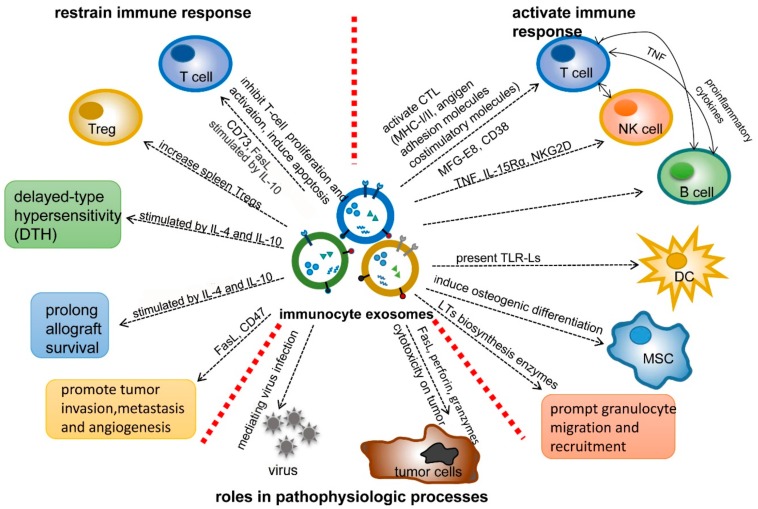Figure 3.
Effects of immunocyte-derived exosomes in the immune response and the pathogenesis of disease. Shown is the spectrum of immunocyte exosome functions that have been identified to date. Immunocyte exosomes stimulate immune responses by potentiating antigen presentation by dendritic cells (DCs) and B cells, driving CD4+ T cell-mediated help, activating cytotoxic effector function of NK and CD8+ T cells, or by directly mediating cytolytic activity. On the other hand, exosomes can be engineered to repress immune function by inhibiting T cell proliferation, inducing lymphocyte apoptosis, and stimulating Treg development and expansion. The composition and function of exosomes can be manipulated by treatment of cells with cytokines, such as IL-4 and IL-10, or expression of molecules such as Fas ligand and CD47. Exosomes are also involved in non-immune functions, such as chemotaxsis and osteogenic differentiation of stem cells and in pathological processes, such as athlerosclerosis, tumor metastasis, autoimmune disease, and sequelae of viral infections.

